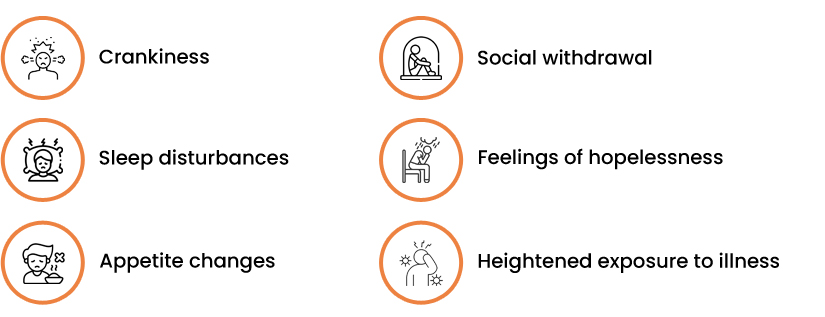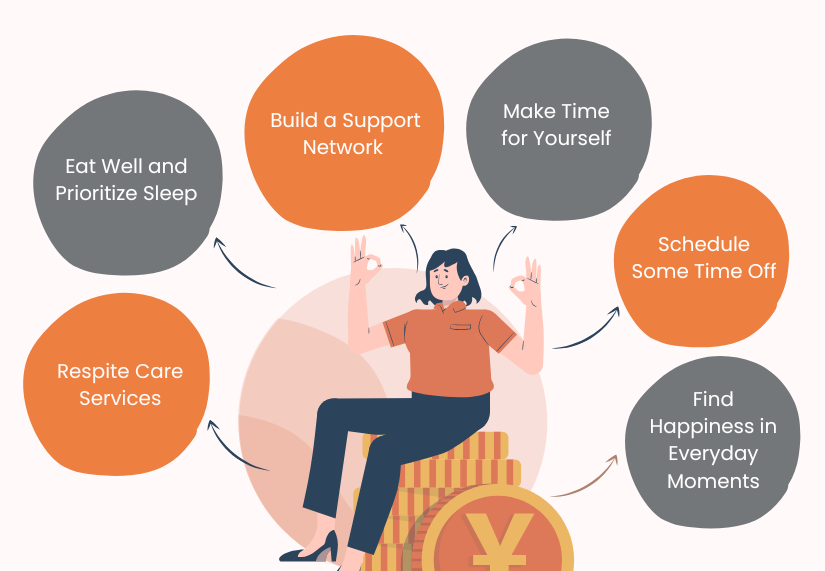
Taking care of oneself isn’t selfish; it’s crucial for everyone’s well-being, especially for the millions of caregivers supporting patients with long-term illnesses or disabilities.
According to the Centers for Disease Control and Prevention (CDC), about 1 in 5 adults in the U.S. are caregivers, with around a third of them dedicating at least 20 hours per week to caregiving duties.
And, recent surveys highlight the majority of stress and burnout among senior care professionals, with 49% ranking it as their most significant challenge. Additionally, 61% reported feeling extremely stressed or burned out, emphasizing the need for comprehensive support systems within home care agencies to tackle these challenges.
So the responsibility of caring for a patient can be overwhelming, often leading to caregiver burnout—a term used to describe the stress associated with this role.
That’s why, in this article, we are sharing tips on reducing caregiver stress and burnout.
Caregiver burnout arises when individuals focus entirely on caring for someone else, neglecting their well-being. This neglect often leads to heightened risks of depression and anxiety, a fact emphasized by the CDC. A September 2018 study in Medicine reveals alarming rates of anxiety and depression among caregivers, particularly those tending to individuals with Alzheimer’s. Moreover, caregivers may experience stress due to a lack of specialization knowledge, which is caused by improper caregiver training programs. This neglect of self-care stems from various factors, including time constraints and undervaluing personal well-being.
Recognizable symptoms of caregiver burnout are:
Caregiving is deeply personal and can take a toll on emotional well-being. Without proper management, common emotional reactions can lead to burnout. Acknowledging and addressing these emotions is the first step toward coping effectively:
Caregiver burnout sneaks up on you. It starts with manageable days but soon turns into endless exhaustion. You may be on duty 24/7 without a break. Sound familiar? Many caregivers have been there.
Here’s why it happens-

Taking care of someone else is important, but remember yourself. Consider exploring respite care services, such as hiring home health aides or utilizing adult daycare centers. These options provide valuable breaks from your caregiving responsibilities, allowing you to recharge and focus on self-care.
Additionally, being the primary caregiver can take an emotional toll, and seeking counseling services can offer much-needed support. Although investing in these services may seem like an added expense, they can significantly reduce stress for you and the person you care for, ultimately leading to a more positive caregiving experience.
During stress, it’s common to neglect proper nutrition and sleep habits. However, doing so only exacerbates stress levels and increases the risk of burnout. Make it a priority to consume nutritious meals and get enough rest each night. Remember, your health directly impacts your ability to provide effective care.
Schedule regular breaks throughout your day and incorporate relaxation activities, such as taking walks or engaging in hobbies you enjoy. By prioritizing your well-being, you’ll be better equipped to provide the care your loved one needs while maintaining your health and resilience.
No one should have to face the challenges of caregiving alone. It’s important to surround yourself with supportive friends and family who understand what you’re going through and can offer both emotional comfort and practical help. Joining a caregiver support group can also be beneficial, as you’ll meet others in similar situations and have a space to share advice and experiences. Having people who can assist with grocery shopping or providing transportation to medical appointments can greatly reduce your stress levels and lighten your load.
While caring for others is important, taking care of yourself is equally important. Find activities that bring you joy and relaxation, whether going to a yoga class, treating yourself to a massage, reading a book, or simply spending time with friends. Self-care doesn’t have to be time-consuming; even just 10 minutes a day doing something you love can make a big difference in handling stress and managing your energy levels. Prioritizing time for yourself is essential for your well-being as a caregiver.
As a caregiver, getting caught up in your responsibilities is easy, but remember to give yourself some time off. Even if it’s just a short getaway with friends or family, taking a break can do wonders for your well-being. Plan and make arrangements for someone to step in while you’re away so you can truly relax and recharge. Additionally, engaging in long-term caregiver training may help you save some time from your hours, giving you spare time for yourself.
Being a caregiver can be tough, but don’t forget to find joy in the small moments. Whether it’s sharing a laugh with loved ones, indulging in your favorite hobby, or simply taking a moment to breathe and relax, finding happiness in everyday life can help keep you motivated and positive. So, make time for the things that bring you joy and laughter—it’s good for the soul!
Life can get pretty overwhelming, especially when juggling caregiving on top of everything else. Recognizing the signs of caregiver burnout is the first step in learning how to deal with it. It might feel strange to prioritize your needs, but neglecting self-care can take a toll on your happiness and effectiveness as a caregiver. You should ask your agency for professional caregiver training whenever you feel overwhelmed by your workload or lack knowledge of specialty care. With this, you will be able to relieve the stress and enjoy your work a lot more.
As we mentioned before, taking care of yourself isn’t selfish—it’s necessary. When you make time for self-care and seek support when you need it, you’ll find that you’re better equipped to handle the challenges of caregiving. And when you’re feeling good, you’ll be able to enjoy your role as a caregiver and find peace of mind along the way.
Contact us to inquire about our state-wise training courses and take the first step towards upskilling your team with a 14-day free trial!